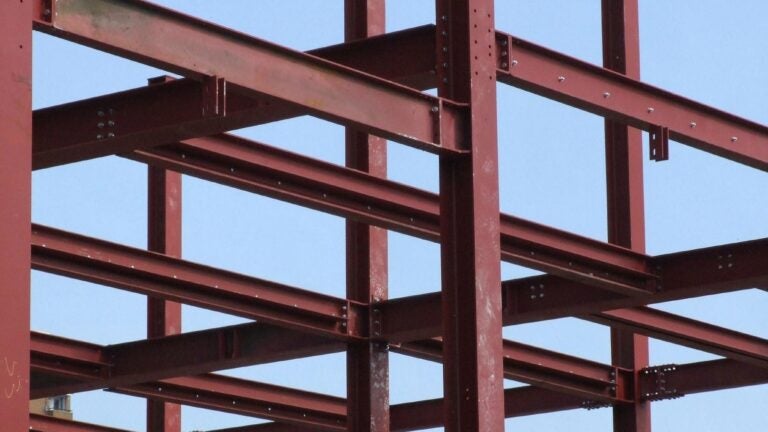
President Donald Trump cited national security as the reason to impose tariffs on steel and aluminum imports. (Photo/Les Chatfield)
After Trump’s tariff move, will a trade war follow?
USC experts weigh in on what may come next and what was behind the controversial decision
President Donald Trump’s move today to impose new tariffs on imports of steel and aluminum excludes Canada – the leading source of American steel – and Mexico, but affects other trade partners such as China. What happens if a trade war ensues?
“The lesson of the 1930s was that nobody wins trade wars,” said Jonathan Aronson, a professor at the USC Annenberg School for Communication and Journalism and the USC Dornsife College of Letters, Arts and Sciences.
“Everybody is hurt and the damage can spill over to political relationships,” said Aronson, an expert on international trade, trade barriers including tariffs and non-tariffs, the North American Free Trade Agreement and the Trans-Pacific Partnership.
Trump steel tariffs justified?
Greg Autry, an assistant professor at the USC Marshall School of Business and an expert in trade and China policy, said there are good reasons for Trump to have imposed the tariffs.
China’s aggressive steps to erode America’s steelmaking industry have long had troubling repercussions for national security, he wrote in a Washington Examiner article.
It’s simply not a tolerable or safe position for the U.S.
Greg Autry
“It’s simply not a tolerable or safe position for the U.S.,” Autry wrote.
National security is precisely the reason cited by Trump in issuing the tariff order.
“The president has the authority to impose these tariffs under an old, rarely used trade law, enacted in 1962, on imports that the president deems to be a threat to national security — in this case, imports of steel and aluminum,” said Brian Peck, an adjunct professor and director of the Transnational Law and Business Center at the USC Gould School of Law.
Politics and Trump steel tariffs
But if previous presidential trade decisions are an indicator, the president’s political goals likely played a pivotal role in the decision, said Provost Professor Jeffery A. Jenkins of the USC Price School of Public Policy.
In examining presidents’ unilateral trade adjustments between 1986 and 2006, Jenkins and colleagues found that tariffs were imposed to support the presidents’ own electoral coalition, not to support members of their own party in Congress.
“The current disagreement between President Trump and Republicans in Congress — led by House Speaker Paul Ryan — on tariffs is not surprising,” Jenkins said. “It is in keeping with long-standing differences in electoral incentives that the president and his co-partisans in Congress face on tariff policy.”



